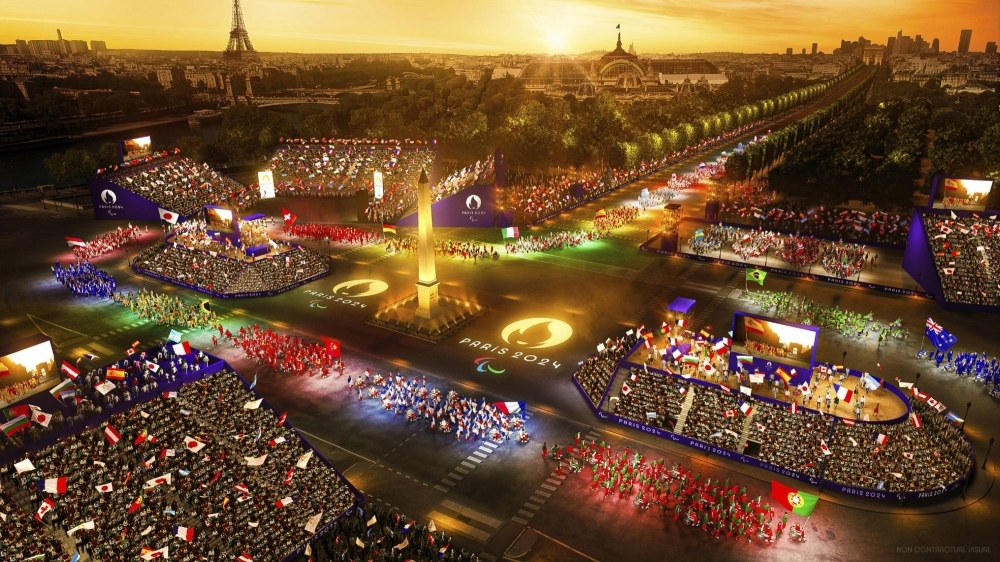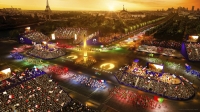The 2024 Paralympic Games will create an unprecedented spectacle with its opening ceremony on Paris' iconic Champs-Elysees boulevard, while continuing to open minds to the talent and potential of people with disabilities, International Paralympic Committee President Andrew Parsons believes.
Speaking recently, Parsons discussed the meaning of the event both locally as well as for the wider world at a time of increasing pushback against the rights of marginalized people.
"In Paris and France, we want to work in two ways. First of all, there's a need to increase the accessibility of the nation as a whole and I think we are going to achieve that," Parsons said. "President (Emmanuel) Macron announced a package of €1.5 billion ($1.64 billion) in making public spaces throughout the nation more accessible.
"Paris is investing €125 million, making Paris' transport system more accessible.
"There are many projects in Paris and in France ... to change perceptions. And of course, the games will be a catalyst for the acceleration. So, I think the combination of the two will provide a huge improvement in the quality of life of the 30 million French people with disabilities."
Parsons promised an eye-opening Paralympics against the backdrop of the French capital.
"In general, I believe these will be the most spectacular games in history, due to the combination of the sport, the crowds and the venues and Paris," he said. "The high level of Paralympic sport is more evident than ever before.
"The venues in incredible locations ... they will be in the heart of the city."
But behind the spectacle, he said, the message is most important. And while the Paralympics are primarily a sporting event, the broader theme of inclusion is essential to the movement, especially when the rights of religious and ethnic minorities and the LGBTQ community are under increased threat around the world.
"It's a fundamental piece of our DNA. The Paralympic movement was created by Sir Ludwig Guttmann 70-something years ago to include persons with disability through sport," Parsons said. "That's what we try to achieve."
"We try to present the games as an example that if you give opportunities to persons with disabilities, they can excel — and not only in sport. We believe that sport is a very visible phenomenon so people in a 10-second athletic race, people get it," he said, snapping his fingers, "because it's sport, because it's so powerful.
"So, we play our part in trying to make people understand that difference is a strength, that you need to respect difference, that the world is a more interesting and better place if we are able to respect each other's differences. We know that sport cannot solve or cure all the problems in the world, but we believe it's a very powerful way to change mentality."
Parsons said the Tokyo Paralympics in the summer of 2021 showed the difference the games could make for a host nation.
"We saw it in Japan, for example, with the games. We saw a big change in mentality, and how Japan perceives persons with disability, and now they are being more present in society," he said.
The IPC chief said the positive impact could also be felt beyond that.
"If you can think of persons with disability, you can think of diversity in general, including ethnicity, sexual orientation, gender, political opinion and so on," he said. "We will not fix everything, but we want to contribute to a better world, and sport is a very powerful tool, one that people can understand because of their experience with sport."




